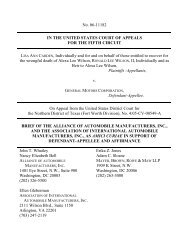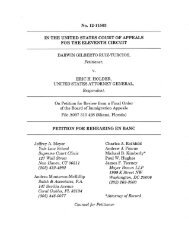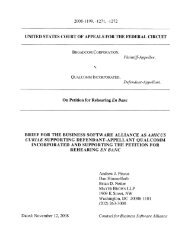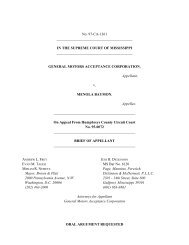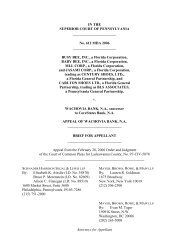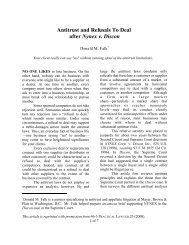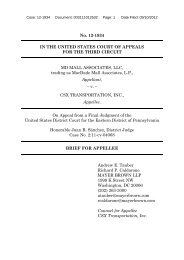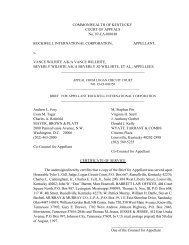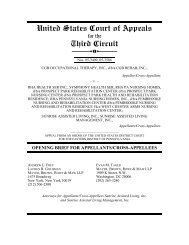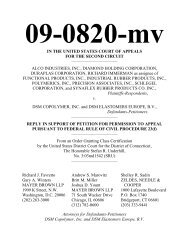No. 5-99-0830 IN THE APPELLATE COURT OF ... - Appellate.net
No. 5-99-0830 IN THE APPELLATE COURT OF ... - Appellate.net
No. 5-99-0830 IN THE APPELLATE COURT OF ... - Appellate.net
Create successful ePaper yourself
Turn your PDF publications into a flip-book with our unique Google optimized e-Paper software.
for this Court to alter that authority now. The First and Second Districts agree that plaintiffs<br />
must prove ICFA violations by “clear and convincing” evidence. See Lidecker v. Kendall<br />
College, 194 Ill.App.3d 309, 314 (1st Dist. 1<strong>99</strong>0); Munjal v. Baird & Warner, Inc., 138<br />
Ill.App.3d 172, 183 (2d Dist. 1985). 57/<br />
For decades, the Illinois Supreme Court has required that common law fraud claims<br />
be proven by “clear and convincing evidence” to ensure that liability is not based on mere<br />
suspicions of dishonesty. See, e.g., McKennan v. Mickelberry, 242 Ill. 117, 134 (1909). The<br />
rationale for applying the “clear and convincing” standard in common law fraud cases<br />
applies fully to statutory fraud. ICFA expands the definition of fraud and streamlines the<br />
elements, but it remains, as its name confirms, about fraud, and therefore triggers “[t]he<br />
general rule of American law, long recognized as equally true both at law and in equity” that<br />
fraud is “not to be presumed,” and must be “clearly proven.” 9 STUART M. SPEISER ET AL.,<br />
<strong>THE</strong> AMERICAN LAW <strong>OF</strong> TORTS § 32:103, at 443-45 (1<strong>99</strong>2). Indeed, the Illinois Supreme<br />
Court has already recognized that the procedural safeguards that protect defendants in<br />
common law fraud cases apply to ICFA, holding that “a complaint alleging a violation of<br />
consumer fraud must be pled with the same particularity and specificity as that required<br />
under common law fraud.” Connick, 174 Ill.2d at 501. There is thus every reason to believe<br />
that, when presented with the opportunity, the Illinois Supreme Court will agree with this<br />
Court and hold that ICFA claims must be proven by clear and convincing evidence. 58/<br />
The Third District is alone in reading ICFA to permit proof by a “preponderance of<br />
the evidence.” Malooley v. Alice, 251 Ill.App.3d 51, 56 (3d Dist. 1<strong>99</strong>3).<br />
57/<br />
58/<br />
In addition, the Illinois Supreme Court has consistently held that the “clear and<br />
convincing” standard must be applied to claims for the imposition of a constructive trust,<br />
-125-



